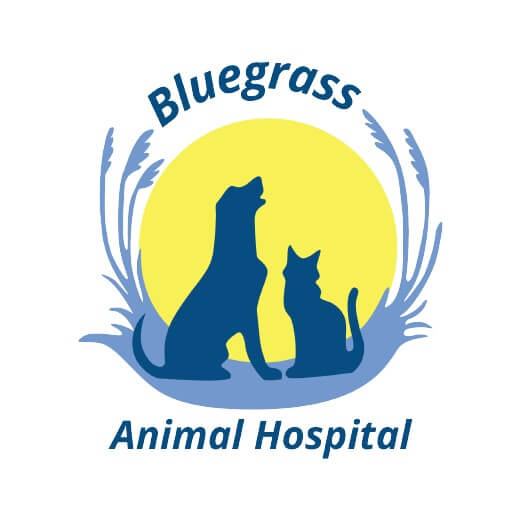There are two types of pet parasites – ectoparasites and endoparasites. Ectoparasites live on your pet's skin. This category includes ticks and fleas. On the other hand, endoparasites live inside your pet's body. They include hookworms, tapeworms, and whipworms. When unattended to, parasites irritate and spread diseases to you and your pet. At Bluegrass Animal Hospital, we have years of experience helping Knoxville, TN residents take measures to protect their pets from parasites.

Sometimes, just a walk outdoors can expose a pet to a parasite that can become a health problem. Your veterinarian can help ensure your pet is free of parasites that undermine good health. At Bluegrass Animal Hospital in Knoxville, TN, we offer testing, treatment, and prevention of both internal and external parasites.
Common Pet Parasites
Fleas
Fleas are small, active parasites that live in animal’s coats, and sometimes in your home bedding and furniture. Fleas are tiny insects that hop from one animal to another. Their movement skills make it difficult to contain them. These insects can cause irritation and itching in pets. When not contained early enough, they can contribute to serious disorders like anemia. These tiny pests feed on blood, and their bites can be very uncomfortable and annoying.
Ticks
Ticks are parasites that infest the skin of pets and are larger parasites that attach to the skin and feed on the animal’s blood. Pets that live in woodlands face more risks of being affected by ticks. These external parasites irritate, and when not controlled early, they can transmit Lyme Disease to your pet.
Ear Mites
Ear mites are common in young pets, especially puppies. Mites are very tiny parasites that burrow under an animal’s skin. One animal can spread them to the other through close contact. Symptoms of ear mites include repeated scratching of the ear and a generally irritated disposition.
Heart Worm
Heartworms are microscopic worms that are transmitted to dogs and cat through the bite of a mosquito. The disease is passed on when the mosquito feeds on the blood of an infected animal and then bites the next animal. These tiny worms travel through the bloodstream and lodge in the heart and lungs, where they begin to grow and reproduce, crowding out the animal’s organs. Heartworm disease can be difficult to treat. The protocol requires complete rest, the use of medications to eliminate the worms and antibiotics. If not diagnosed and treated early, the effects of heartworm can be fatal. Your vet can provide testing and preventative medications, so your pet can avoid this serious disease.
Ringworms
Actually, "ringworms" aren't worms at all. This fungal disease attacks your pet's hair, skin, and nails. Pets can also carry the fungi without displaying symptoms.
Hookworms
Hookworms are intestinal parasites that cause digestive problems and blood loss, especially in younger animals.
Roundworms
Roundworms invade the intestines and steal the nutrients your pet urgently needs. They can also move to the lungs, where they cause respiratory diseases.
Tapeworms
Tapeworms are segmented worms that grow many feet in length. They inhabit the intestines, living off of incoming nutrients and causing malnutrition. Tapeworm segments, which contain eggs, may appear around your pet's anus, a sure sign of infestation.
Protecting Your Pet Against Parasites
Apart from making your pet's life unbearable, parasites contribute to many serious diseases, many of which are fatal. In some serious conditions, pet parasites can infest pet owners. Flea and tick bites irritate and may even transfer diseases to human beings.
Once you notice parasites on your pet, contact our veterinarian immediately for advice on effective parasite control products. Our veterinarian may recommend special tablets and sprays for external parasites. While internal parasites may be harder to detect, our on-site laboratory allows our veterinarian to quickly identify and address endoparasites like heartworms. We may also provide vaccinations to protect your pet from future parasite-related disorders. A wide variety of flea and tick control products are available. Your vet can advise you on the best product for your pet’s needs.
Animal Hospital in Knoxville
At Bluegrass Animal Hospital in Knoxville, TN, we have an on-site laboratory and pharmacy to diagnose and treat parasite-related conditions. We also offer regular pet vaccinations to protect your furry friend against diseases. For more information or to schedule an appointment with our veterinarian, call us at (865) 694-8387.
